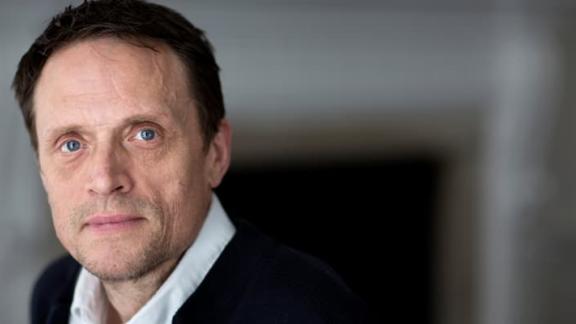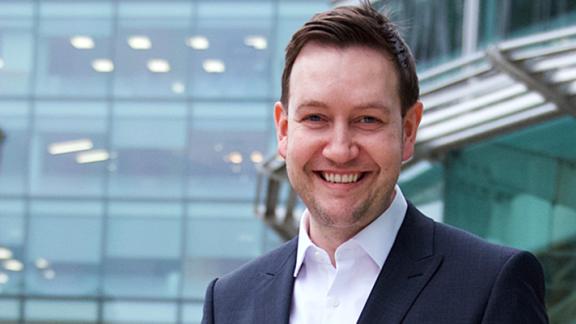Not too much to mask

A collective belief will help to slow the spread of COVID-19 once the restrictions are lifted in England, writes Matthew Taylor, and a new initiative from the NHS Confederation aims to support informed decision-making when personal choice replaces government guidance.
Many of us want to protect our fellow citizens from danger after ‘Freedom Day.'
As the organisation that represents all parts of the NHS, the Confederation wants to help.
Some people support the removal of almost all COVID-19-related legal constraints on 19 July, others are opposed. Many think it is a gamble. Hospitalisation and death rates are already exceeding the forecasts that appear to have informed the government decision.
As the Confed has highlighted in our Winter in Summer briefing, just about every part of the NHS is struggling under unprecedented levels of demand.
The science on whether having a much higher level of infection in the community could lead to new and more vaccine resistant variants is uncertain. For some people with medical vulnerabilities, Freedom Day will mean greater fear and isolation. We all hope the government’s roll of the dice pays off, but there is surely an argument to try to reduce the stakes.
Let us remember that millions of people working in frontline jobs, for example, in caring roles, in public transport, in retail, will have little or no choices but to mix with their fellow citizens. When we fail to take precautions, we are making choices not just for ourselves but for them, too.
Over the last few years, I have spent much time studying what motivates people and the consequences for organisations and policy. Before I left my last job, at the RSA, I published several very long blog posts outlining my ideas, but for the less masochistic of you there is also an excellent seven-minute animation.
My argument, in essence, is that we have three core motivations, each of which brings with it a set of assumptions and methods. These motivations are authority, belonging, and individual preference: We do things because we are told to; because we feel we should, given the groups we belong to; or because we personally choose to.
There is considerable evidence that the most effective policies and organisations tap into these three motivational systems and achieve some balance between them.
Collective belief is a powerful driver of action, but it needs to be articulated and channelled.
In relation to COVID-19, the Prime Minister has said we should shift from relying on top-down compulsion and exercise greater personal responsibility. But what exactly is supposed to replace the pressure and guidance of authority when it is withdrawn on 19 July? When it comes to personal choice, most of us have few self-interested reasons to go out of our way to be cautious. It is not personal choice that will replace the law, but a sense of mutual obligation.
Collective belief is a powerful driver of action, but it needs to be articulated and channelled. We need to know what is expected of us, and it is encouraging to know we are not acting alone. If people want to protect their fellow citizens after 19 July - as very many seem to do - we would surely assist that desire by providing a collective framework to guide and reinforce cautious choices.
That is why the Confed has been consulting with a variety of our partners on the launch of a national initiative focused on helping and empowering members of the public to make sensible and informed decisions once the restrictions in England lift.
This would comprise a series of pledges that people could make, relating to actions that can slow down the spread of infection. This includes the wearing of face coverings, keeping indoor spaces well-ventilated, the importance of hand hygiene, getting tested, and getting both doses of the vaccine.
The aim of the Confed and its partners is simply to give people extra support in showing caution.
There is a clear need for caution over the summer, particularly when so many adults have not had two jabs, but we would stand down or pause the campaign as soon as it becomes clear that the risks to the NHS and wider society of a further COVID-19 wave have receded.
Sadly, the question of COVID-19 restrictions, and even choices about mask wearing, are often seen through the prism of the so-called ‘culture wars.’ It is important to emphasise, this pledge is not about self-righteousness. It is not about condemning those who choose not to make the pledge. It’s not intended to expose those who do pledge but don’t always live up to their intentions. We are all human. It is not more condemnation, we need but more consideration.
The aim of the Confed and its partners is simply to give people extra support in showing caution and to encourage other organisations, including employers, to consider how they could support those who have made the pledge.
Over the next couple of days, the Confed is intending to fine tune the idea with our health and wider partners, but in a spirit of openness and public engagement we wanted to use this post to test the idea and get feedback before we launch.
If you’d like to find out more, email the team.
Matthew Taylor is chief executive of the NHS Confederation.


